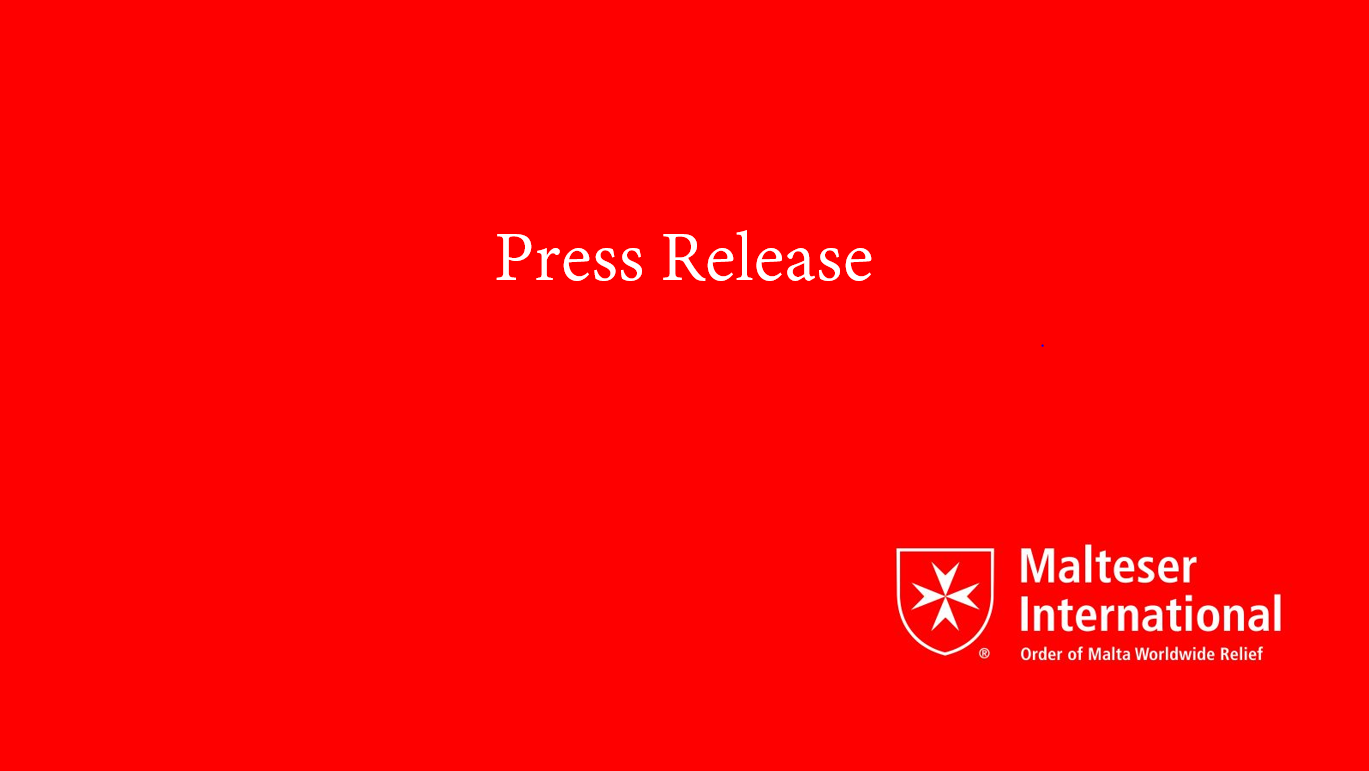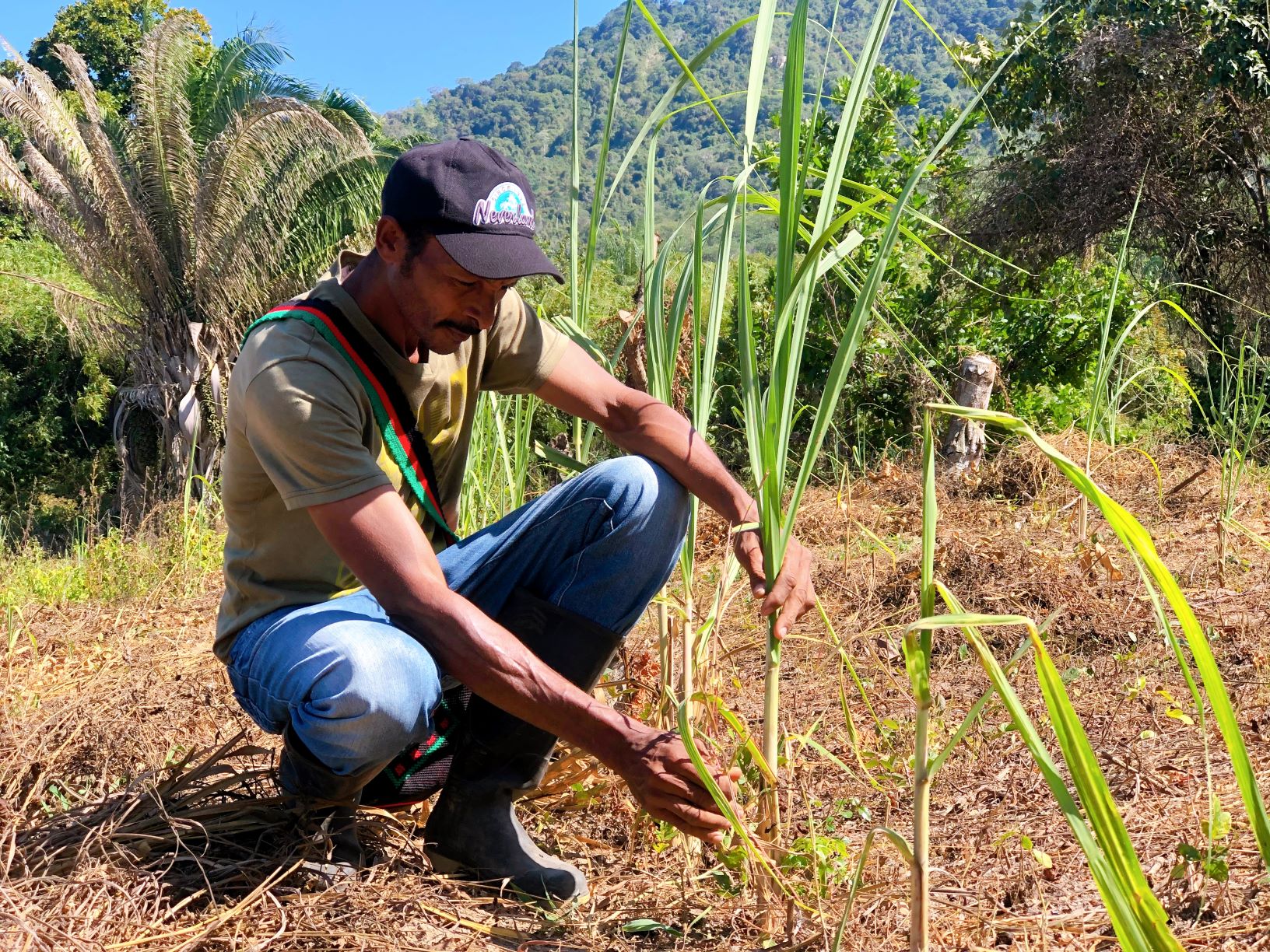Americas
January Newsletter: News from Haiti, Colombia and across the Americas
Another Earthquake Strikes Haiti
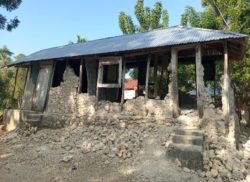
On Monday morning, Haiti was struck by yet another earthquake. The earthquake was a 5.3 magnitude, with a depth of over 6 miles, and caused significant damage in the rural areas of the Nippes region of Southwestern Haiti. Two people are confirmed dead. Anse-à-Veau was the main municipality that was affected on Monday, as well as the rural areas of Petite Riviere and Miragoane.
Many children are traumatized, as this took place at 8:16am, just as classes were beginning. Panicked children ran out of their school buildings throughout the nearly 30 aftershocks that took place after the initial tremor.
While our immediate response and assessment is still underway, we know over 50 people are injured, many having been evacuated to hospitals for treatment, and hundreds of homes have been destroyed. Primarily, children and their families need psychological support to continue. All of these families live on under $2 a day, and their communities lack basic social services.
It is heartbreaking to think this earthquake took place just days after the anniversary of the disastrous 2010 quake which caused billions of dollars in damage and killed nearly 200,000 people, and just a few short months after the August quake that affected the same area and took the lives of nearly 2,200 people.
Thankfully, we’ve been able to quickly mobilize due to our on-going presence in this region for many years. Our recovery efforts from the August earthquake prioritized continued mental health support for over 1,500 children and their teachers. It is because we have been fully operational in the area that we have been able to rapidly deploy mental health professionals to the affected areas, hoping to assuage their pain in the immediate aftermath.
Haiti’s resilience continues to be tested, and we will be with them every step of the way. We hope you can continue to support us in this latest tragedy.
MI Americas has been active in Haiti since 2010.
Colombia: Nutrition is a Life-Line
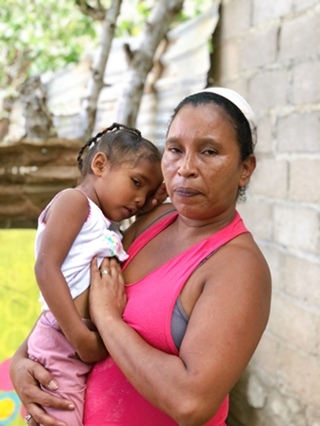 Sometimes, in the field of humanitarian development and aid, there are cases like those of Maylen Del Carmen Toral Lara, a 42-year-old Colombian woman who had been living in Venezuela for several years with her family, that remind us exactly why we do what we do.
Sometimes, in the field of humanitarian development and aid, there are cases like those of Maylen Del Carmen Toral Lara, a 42-year-old Colombian woman who had been living in Venezuela for several years with her family, that remind us exactly why we do what we do.
Like many, Maylen decided to return to Colombia in 2018, saying it was impossible to find work or afford the basics for her children. Since her return to Colombia, life has been very difficult for her and her children. She has lost all contact with her family and lowers her gaze when asked about them.
“My life has been a tragedy, the girl’s father passed away. I have three brothers and I have not heard from them for many years; my mother was killed by her partner earlier this year, my father – I never knew him, I learned that he recently passed away from COVID-19. I am practically alone in this world!”
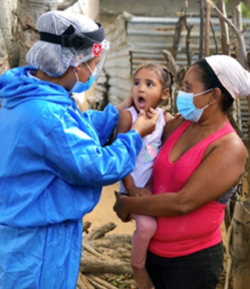
After months of struggling to find work and a stable place to live, Maylen heard about MI Americas’ nutritional support program and took her four-year old daughter to be evaluated by the nurses. When she arrived, her daughter was diagnosed with acute malnutrition and has been scheduled to receive regular check ups every two weeks and nutritional supplements to improve her health. After months of regular check-ups and support, her daughter has managed to put on weight and is in a much better state.
As with humanitarian work in general, the process of healing from malnutrition can be slow. But addressing such problems at an early stage, and helping communities feel empowered, is critical to helping families get back on track to lead healthy lives.
Medical Care for Migrants, Refugees and Returnees

Thanks to the support of the U.S. State Department’s Bureau of Population, Refugees and Migration, we’ve been able to help bridge gaps in healthcare for Venezuelan migrants, refugees, and Colombian returnees living in Colombia, all while supporting the host communities who welcome them. Through this project, we’ve been able to give these vulnerable communities access to Colombia’s medical system, from which they would otherwise be excluded.
Little Milán (above), who’s just one year old, watches us while his mother receives health care from a member of our medical team in Colombia. This family, who migrated from Venezuela 6 years ago, was among the first to arrive to our mobile health clinic in a highly vulnerable neighborhood of Riohacha in the northern state of La Guajira.
Our entirely free healthcare services range from general check-ups, mental health and psychological care, prenatal care, and the prescription of medications when necessary.
Another step in the right direction as we continue our mission to providing a healthy life of dignity to the most vulnerable.
